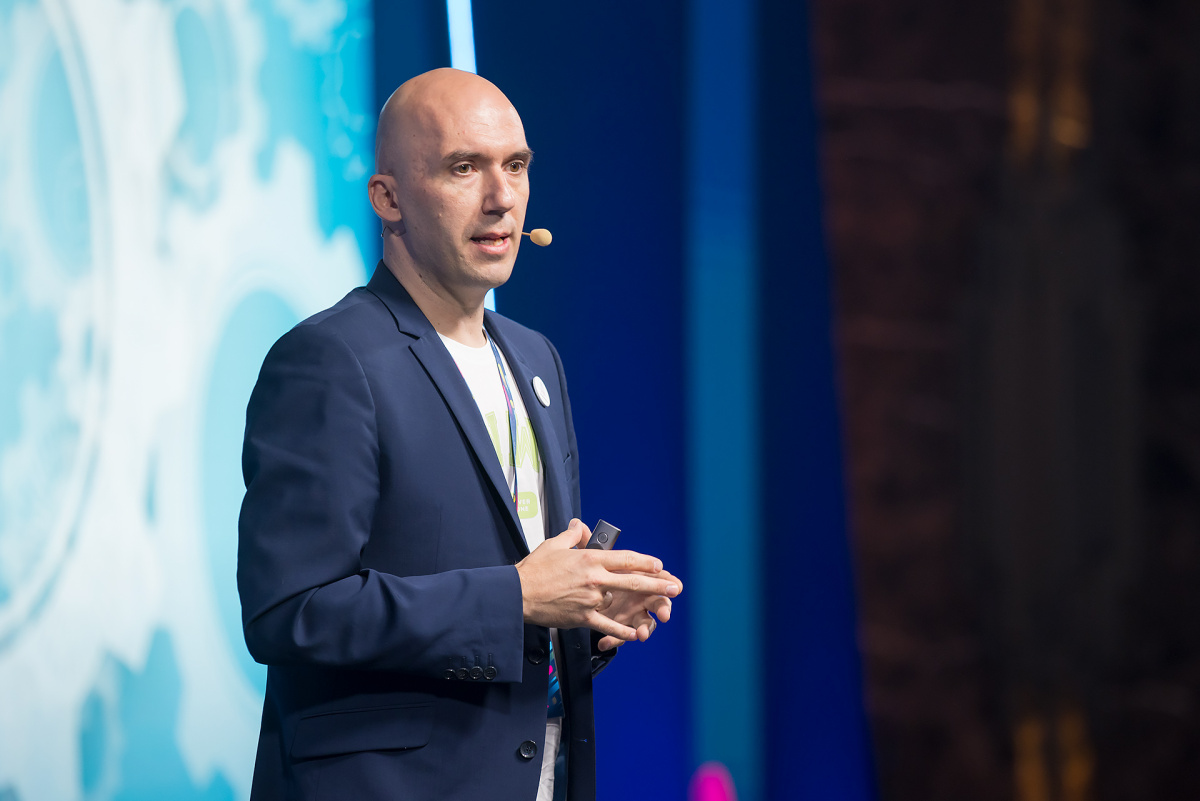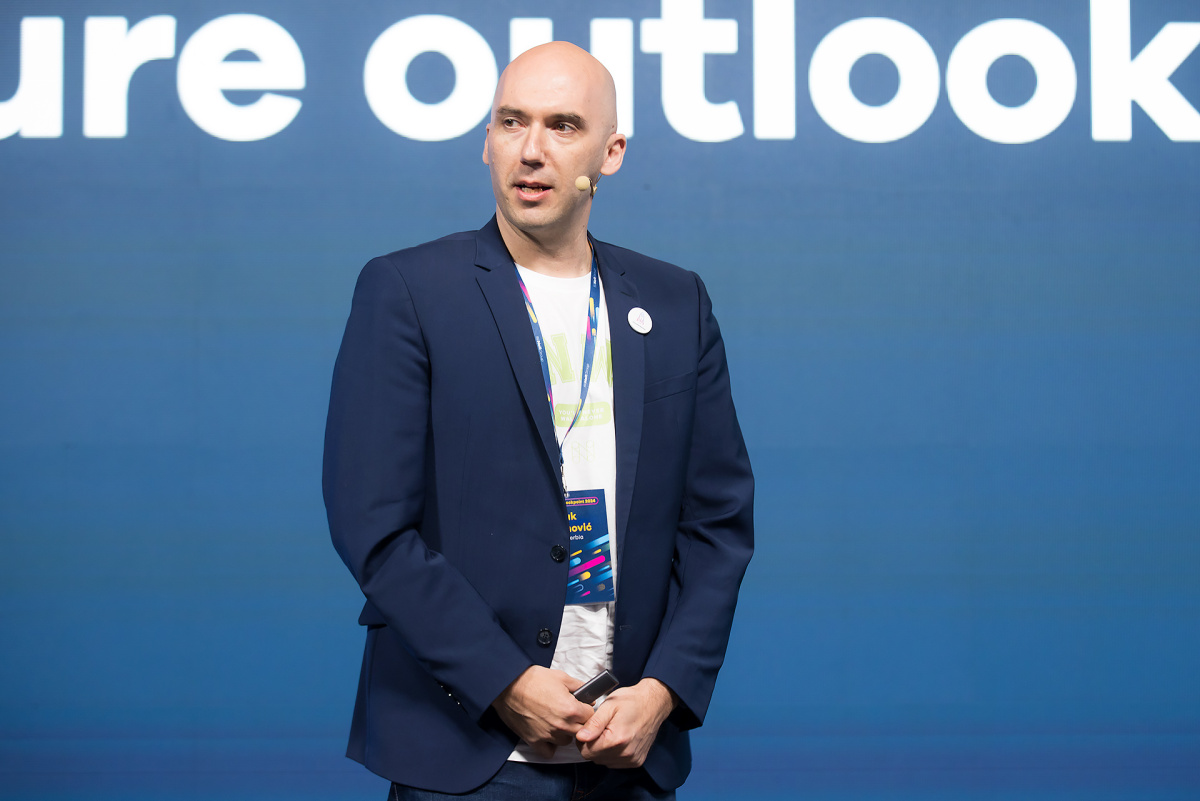Vuk Mijanović, Business Development Manager of Logistics, NELT has over 20 years of experience in supply chain management and logistics. He was key in establishing Nelt’s logistics, leading network design, optimisation, software integration, and performance improvement projects. He manages logistics operations, implements supply chain strategies, and focuses on intermodal transport and digital innovations.

How would you describe Nelt today?
Nelt is now a multinational company in 13 markets across two continents. We have a system of 5,500 employees, of which we are most proud. We are one of the most successful and modern business systems in the Adria region regarding the supply chain, consumer goods, tobacco, pharmaceutical, and cosmetic products, and the development of our brands. Nelt’s three decades of successful business are built on trust, established through introducing best practices, maintaining high business standards, and open communication with employees, logistics clients, distribution principals, and institutions across all our territories.
What is Nelt’s recipe for success, and what would you say is its biggest competitive advantage?
The people who work at Nelt are certainly our biggest competitive advantage, and that’s true. Our corporate culture and values, which we all genuinely live by, set us apart from other companies, though many other factors contribute to Nelt’s uniqueness. We strategically and continuously invest in our employees through various programmes at all levels. At Nelt, our success depends on the organisation’s health. We conduct extensive employee satisfaction surveys every two years using globally recognised methodologies to gather feedback, which we then implement. These initiatives are carefully selected to improve organisational health, with participation from all employees, from the executive board to operational positions. We foster an environment of trust and allow employees to create solutions, thus developing individuals capable of innovation while building personal and professional integrity. People have always been, from an employer’s perspective, more than ever before, a strategic resource. Those who find the best way to recruit and retain quality employees will win in the market.
You achieved revenue growth in logistics services, and at the recent Nelt Customer Day, you announced the largest investment cycle in Nelt’s history. What does that mean?
Logistics services have been a focus for the past few years. This has led to success in terms of results, but we are aware that our potential is much greater. For some time, we have been working on the prerequisites that can ensure the success of our “Accelerate” strategy. We focus on digital transformation, the company’s organisational health, and improving processes and competencies. In the coming years, starting from today, we plan major investments in new logistics infrastructure in Serbia, Bosnia and Herzegovina, North Macedonia, Montenegro, and Zambia.
We are planning major investments in new logistics infrastructure and modern technologies across multiple markets, focusing on automation and digital transformation
However, these investments are not just about new warehouses; we will significantly increase logistics capacities. Many of these investments will be directed towards modern technologies, which will automate our operations, following the example of companies in Western Europe and the world. We aim to implement technologies such as “high bay,” “ASRS shuttle” systems, and robotic systems for sorting goods. Besides these investments, the plan is to redesign and optimise the logistics network. We want to offer a wider range of logistics services, create an environment for B2B or B2C e-commerce services, and make our operations even faster and more efficient. The goal is to create the most modern logistics hubs in the region, combining intermodal, powerful fulfilment, and our recognised last-mile service all in one place.
How important are data exchange and digitalisation in integrating the supply chain, and what are the challenges and opportunities associated with these practices?
Saying digitalisation is essential is an understatement—it is a fundamental part of all our lives today. Nelt has been engaged in digital transformation for many years. We started with projects to build the foundations of a digital environment, particularly databases. The “Data Management” project was crucial for our development, as it allowed us to create a unique database and gather all data in one place. This has enabled us to use the data easily to make faster conclusions and decisions and to create reporting tools that are now an integral part of our business. We have also laid the groundwork for using machine learning and AI tools and creating digital products like our B2B platform, NELT Market. This has established an environment that will integrate with all participants in the supply chain—our clients, principals, customers, and suppliers. Data exchange and transparency have no alternative in today’s world, as this is how we understand how we impact each other and where the potential lies to create additional value at every link. The biggest challenge is the data itself—its quality and structure. The more successful we are at consolidating, cleaning, and storing this data precisely, the more benefits these systems will provide us.
Nelt has opened the first private intermodal terminal within its business complex and launched a public rail service, for which you are the operator. What does this service portfolio mean for the supply chain?
We recognised intermodal services as an increasingly prevalent logistics concept trend over seven years ago. We started as a “start-up” with modest capacities and have become market leaders. We work with all shipping companies and freight forwarders in the region. In the meantime, we have expanded our terminal capacity in Dobanovci, opened a new one in Kruševac, and launched a rail service. In addition to Nelt, many domestic and foreign companies have recognised this trend and invested significantly in infrastructure. I believe this is a positive development that contributes to Serbia’s economy.
Our sustainability efforts have reduced CO2 emissions by 300 tons and saved over 1,000 trees through digitalisation and renewable energy initiatives
Strengthening infrastructure is key to increasing the flow of goods. Still, our idea from the start was that the terminal should be just one link connecting all the capacities we can offer our regional partners. All our storage capacities, systems, digital infrastructure, and first-mile and last-mile services are available. Through intermodal, we aim to create a dry port hub to optimise and improve the supply chain for our clients and principals.
Sustainability is becoming a key factor in almost all industries. How does Nelt integrate sustainability into its operations and supply chains?
We are one of the first companies in the region to voluntarily publish a sustainability report using the most relevant global sustainability reporting methodology, the Global Reporting Initiative (GRI). This methodology provides all stakeholders with a comprehensive picture of the impact of our organisation on the environment, with standardised and precise performance indicators. Together with our partner INFORA, in 2021, we worked on developing software solutions to achieve greater efficiency in optimising sales and delivery routes. The automation provided by this new solution has resulted in greater efficiency, optimisation, and time and resource savings, ultimately improving service quality.
Through intermodal transport, we aim to create a dry port hub that will optimise and improve the supply chain for our clients and principals
This solution has reduced fuel consumption, which has reduced CO2 emissions by 300 tons. We implemented digital delivery notes in the Serbian market in 2022, reducing paper consumption by 65%, equivalent to 40 tons annually. This initiative alone has saved over 1,000 trees. The project was also implemented in compliance with local regulations in other markets where we operate. We invest in renewable energy sources, with our logistics centres and factories equipped with solar panels, and we continue to invest in solar power plants. Part of our fleet is also electrified. Our focus on intermodal transport, specifically rail, is key to sustainability in the supply chain. Our terminal and logistics centres can help us and our clients create solutions that significantly contribute to sustainability and global ESG goals.
What do you see as the future of logistics, and where do you envision Nelt in, say three years?
We must look at what is happening maturely and without prejudice and understand what we need. I see the future of logistics through integrating the End-to-End supply chain, with Nelt as the epicentre of regional logistics and the supply chain. Trade is transforming rapidly, primarily through e-commerce, which puts logistics—and Nelt—to a serious test. We need to transform our mindset to integrate fully. The changes we are experiencing today require strong infrastructure, which means significant investments, time, and a workforce currently in short supply. Technology and automation certainly help, but it will not be enough unless we all integrate and work together as one stable chain.
